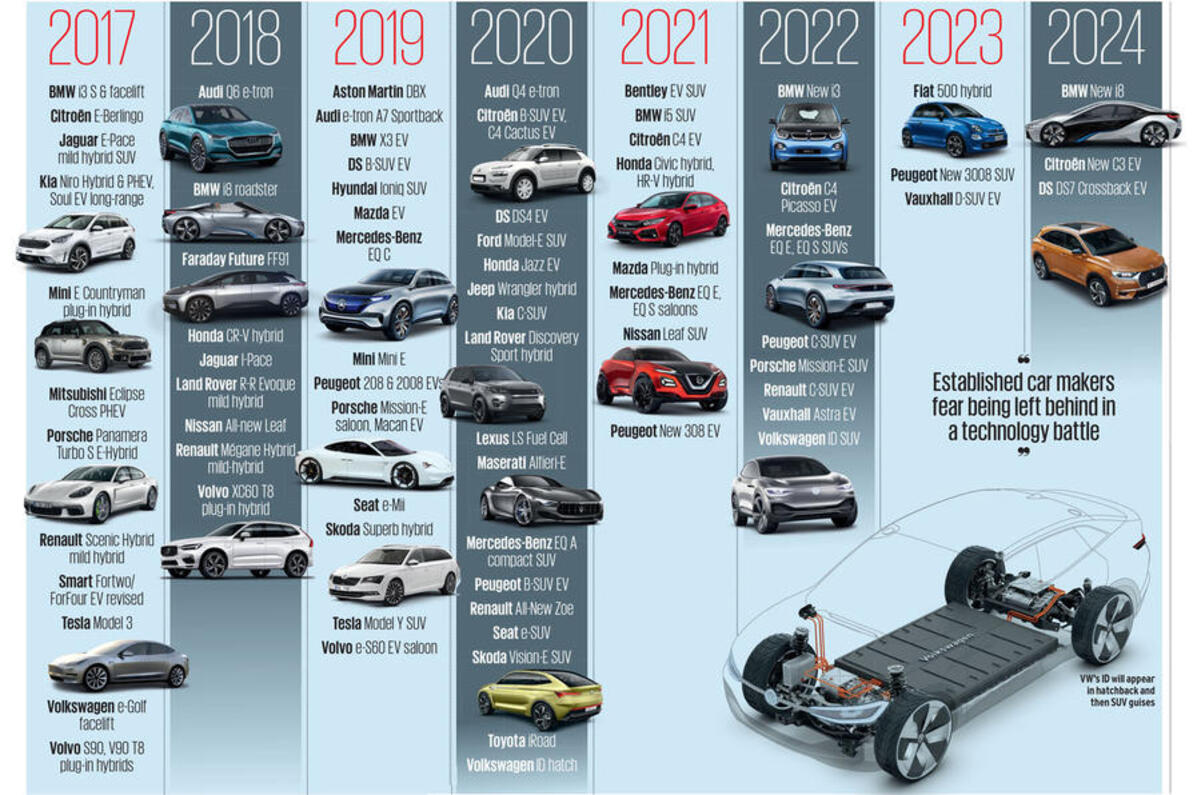Car makers from across the industry have written a letter asking China to reconsider its plan to introduce stringent sales quotas for electric vehicles.
The Chinese government is planning to introduce quotas that determine how many of each firm's car sales must be electric-powered machines, with credits rewarding the sale of electric or plug-in hybrids. The plans calls for 8% of each firm's sales to feature electrificiation by next year, 10% the following year, and 12% by 2020. By 2025, China wants a fifth of all sales to be what it calls NEVs (New Energy Vehicles).
The letter, which comes from firms representing about 70% of the global car industry including companies from Europe, Korea, the US and Japan, calls for China to push back the plans by up to three years. It also asks China to soften what they deem to be over-stringent levies on car makers, based on the number of EVs sold, reports Reuters. The letter was originally cited in a WirtschaftsWoche article.
Insight: why demand from China is spurring growth of electric car sales
Chinese premier Li Keqiang and German chancellor Angela Merkel had originally agreed to less stringent quotas.
Reuters reports that the industry deems the plans too ambitious for the fledgling electric vehicle market, despite most firms planning a major expansion of their electric and plug-in ranges.
The industry suggested in the letter that the quotas are instead based on the individual car makers’ production volume, in order to avoid unfairly high comparative quotas on smaller-volume companies.
Toyota CEO Akio Toyoda already previously pushed back against the plans, arguing that hybrid technology was the only practical, cost-effective bridge until hydrogen powertrains come to the fore.
Read more:
Insight: why demand from China is spurring growth of electric car sales
The Chinese copycat cars of the 2017 Shanghai motor show
Shanghai motor show 2017 - show report and picture gallery
Chinese firm to showcase turbine EV technology at Geneva show




Join the debate
Add your comment
electrificiation
electrificiation?
Good old China
Who'd have thought it would be China pushing the rest of the world into EV expansion. Great stuff. The technology is there, but the poor old industry is going to have to take a bit of a hit because it didn't predict the demand in its product planning. Diddums. Crack on.
Steam powered electric
Battery powered electric vehicles are not the best solution overall in terms of cost, complexity, weight, reliability or safety.
A better solution is a steam-electric power system. A car with a steam pressure vessel and a steam turbine. The compact high rpm steam turbine drives a generator. The electricity from the generator is used to power traction motors.
The steam system can be a closed loop so no water is lost. The steam can be 'recharged' by an electrical heating element inside the steam pressure vessel by connecting the vehicle to a power socket or directly loading steam into the pressure vessel at a 'steam charging point'. Either way, the 'recharging' time would be much faster than a battery.
Such a propulsion system has major environmental benefits. It doesn't require rare earth elements to be mined (and the harmful possible environmental consequences of doing that), it doesn't require complex expensive manufacturing processes, it is less likely to go on fire, it can be easily recycled at the end of its service life and also it may well weigh less than a battery powered vehicle (which tends to have a cooling system fitted for technical reasons).
It would be ideal for driving around cities.
Interesting idea, what would
Interesting idea, what would heat the water, just electricity ? Nothing to power the turbine when not plugged in ? Dont think you can store steam without generating high temps, which would mean something needs to power the heating system. What are the sums for the energy used to heat water to turn it into steam using electricity v recharging batteries ?